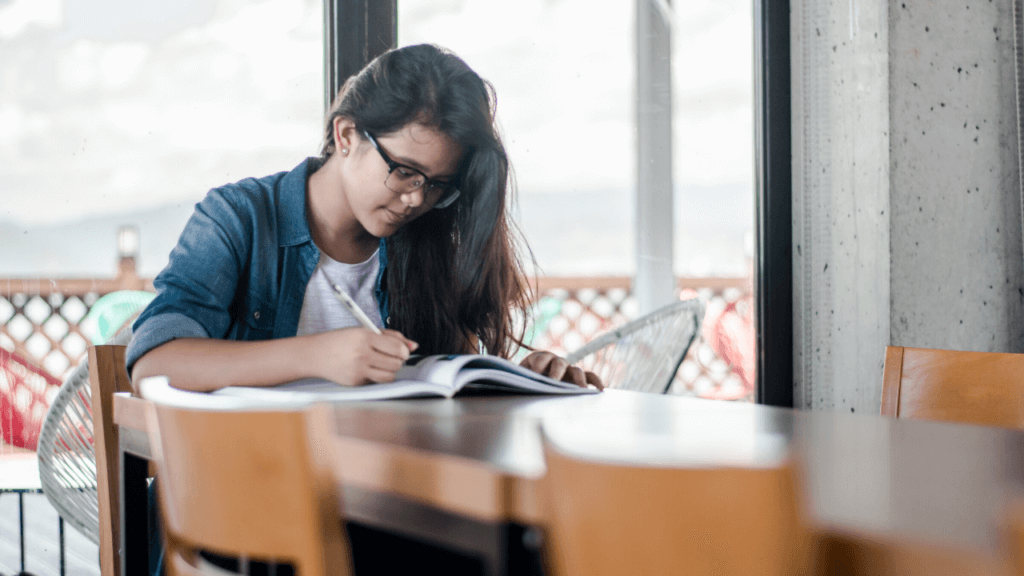
As a developmental pediatrician and parent, I’ve been caught up both personally and professionally in figuring out how best to support families in this unpredictable and undefined moment in history. We don’t know for sure what’s best for families right now. As a bottom line, parents already managing home and jobs and school don’t need any extra pressure on them. We are dealing with everything from tragedy to everyday logistics to mourning the loss of treasured activities and events.
There’s no perfect answer as to what our kids need in the middle of a pandemic, we’re all doing our best.
As many of us have been doing online, advocating for parents to cut themselves some slack is an absolutely perfect message as a start. The catch is: this isn’t a three-day blizzard; we’re here for a while. A total free-for-all may feel easier today, but won’t be sustainable for weeks or months for most families. As the newness wears off some families already have begun to feel ragged around the edges.
The more nuanced and challenging path forward means easing up on ourselves as parents, while also guiding kids towards what keeps them resilient.
Start with family routines.
Kids rely on parents around health and planning because their ‘brain manager’ isn’t grown up yet. A skill set called ‘executive function’ represents the cognitive abilities used to manage any situation that requires foresight, planning and coordination. It also matures fully only in adulthood, near thirty years old. That means that even teens require adults in their lives to make certain they are on the right path. Collaborate, discuss, but also set clear boundaries that keep them safe and healthy.
For starters, what keeps any of us resilient in the midst of chaos? Structure and routine are central to that path. This doesn’t require obsessing over the details. Instead, consider what you think benefits your family and emphasize that first: A daily schedule of some kind, consistent bedtime, exercise most days, getting outdoors if you can, and quality time with family and friends.
Stay creative around supporting schoolwork.
When it comes to school, parents aren’t teachers. Even if you are one, that’s not your role at home with your own children. Online learning is unproven and much of it requires adult facilitation to be effective. And parents have jobs and other responsibilities. It’s an uneasy paradox, but reality.
Expecting kids to be independent online learners before they are ready is going to cause them stress, and us too. Young kids in particular need adult attention around learning, which is normal and also really hard right now.
Set up a work schedule for school days, supervise and teach what you can and when you have the time. Recognize that all you can do is stay creative around what’s actually possible, in this moment in time. When schools open, we’ll all find a way to catch kids up again.
Set a clear limit on screen time.
One big question I am immersed in professionally is how to manage screen time while on lock down. Research shows that lots of it isn’t great for kids. Right now, we’re in triage mode. More than usual is going to happen and that’s okay. Not all screen time is created equal; there’s school, there’s social connection, and then there’s mindless surfing, binge watching and gaming.
The bottom line is: kids need adults to define what’s healthy, because most lack the executive function to see the big picture yet. So, for example, it may be easier to allow teens to spend their entire day on screens, shifting from school to movies and gaming without pause, but do you think that’s healthy to continue indefinitely? Looking at the whole day, define a balanced plate of activities that feels sustainable.
Being completely open ended may work for a few days, but eventually is going to make everyone’s life harder. Separate from the research, most parents recognize that excessive screen use makes their kids irritable and logy. Without rules, screen time also tends to replace healthier, more grounding activities like reading, free play, exercise and hobbies.
There’s no hard number that’s ‘right’, but set a clear limit, use that time to get your own stuff done, and patiently hold to the big picture of what you feel appropriate.
Embrace imperfection.
As always, avoid extremism around parenting. Neither compulsive perfectionism nor complete chaos seem likely to work over months of confinement. If your kids feel supported and safe, that’s what matters most. Stay aware and flexible, check in and adjust often. Expect messy family imperfection, but also hold onto what keeps your family together.Let go of any vision of what this time at home should be. Ground yourself in an intention to bring strength and compassion to whatever you encounter, and trust that an awful lot of resilience comes simply from consistent, positive family relationships. Create a household framework that seems useful and doable. Stay loose, try not to worry too much about what you cannot control, and always trust that you probably know what’s best for your children already.
Mark Bertin, M.D., is a developmental pediatrician and author of How Children Thrive, Mindful Parenting for ADHD and The Family ADHD Solution, which integrate mindfulness into the rest of evidence-based pediatric care. He is a contributing author for the book Teaching Mindfulness Skills to Kids and Teens. Bertin is on faculty at New York Medical College and the Windward Teacher Training Institute, and on the advisory boards for the non-profits Common Sense Media and Reach Out and Read. He is a regular contributor to Mindful Magazine, and his blog is available through Mindful.org and Psychology Today. For more information, please visit his website at developmentaldoctor.com.
